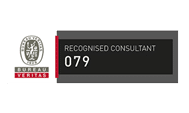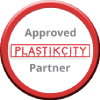Unlocking Excellence: Continuous Improvement in ISO 9001, ISO 14001, and ISO 45001

In today’s dynamic business landscape, the pursuit of excellence isn’t just a lofty aspiration; it’s a strategic imperative. Organisations worldwide strive not only to meet but exceed customer expectations, minimise environmental impact, and ensure the safety and well-being of their workforce. Achieving these goals demands more than mere compliance; it requires a commitment to continuous improvement ingrained into the very fabric of organisational culture. This is where ISO 9001, ISO 14001, and ISO 45001 come into play, serving as guiding frameworks for quality, environmental management, and occupational health and safety respectively, and fostering a culture of continuous improvement.
Understanding Continuous Improvement
Continuous improvement, often referred to as Kaizen in Japanese philosophy, is the relentless pursuit of incremental enhancements in processes, products, and services. It’s about empowering employees at all levels to identify opportunities for improvement, experiment with new ideas, and implement changes systematically. At its core, continuous improvement is not a destination but a journey—an ongoing quest for excellence fuelled by a commitment to learning, innovation, and adaptability.
ISO 9001: Enhancing Quality Management
ISO 9001 is the gold standard for quality management systems (QMS), providing a framework for organisations to enhance customer satisfaction by consistently delivering products and services that meet or exceed expectations. At the heart of ISO 9001 lies the principle of continuous improvement, manifested through processes such as:
- Plan-Do-Check-Act (PDCA) Cycle: A fundamental concept in ISO 9001, PDCA serves as a roadmap for iterative improvement, enabling organisations to plan, implement, monitor, and refine their quality management processes.
- Quality Objectives and Metrics: ISO 9001 encourages organisations to establish measurable quality objectives and regularly assess performance against predefined metrics. By analysing data and identifying trends, organisations can pinpoint areas for improvement and drive ongoing enhancements.
- Customer Feedback and Satisfaction: Continuous improvement in ISO 9001 is intrinsically linked to customer feedback and satisfaction. By soliciting customer input, addressing concerns, and incorporating suggestions for improvement, organisations can refine their processes and deliver greater value to stakeholders.
ISO 14001: Promoting Environmental Sustainability
In an era marked by growing environmental concerns, ISO 14001 provides a framework for organisations to proactively manage their environmental impact and contribute to sustainable development. Continuous improvement in ISO 14001 revolves around:
- Environmental Performance Evaluation: ISO 14001 encourages organisations to assess their environmental performance systematically, identify areas of inefficiency or non-compliance, and implement corrective actions to mitigate environmental risks.
- Resource Efficiency and Waste Reduction: Through initiatives such as waste minimisation, energy conservation, and recycling programs, organisations can drive continuous improvement in environmental sustainability, reducing their ecological footprint while enhancing operational efficiency.
- Stakeholder Engagement: Engaging with stakeholders, including regulatory authorities, local communities, and environmental advocacy groups, is crucial for driving continuous improvement in ISO 14001. By soliciting feedback, addressing concerns, and collaborating on environmental initiatives, organisations can foster a culture of shared responsibility and environmental stewardship.
ISO 45001: Safeguarding Occupational Health and Safety
Ensuring the health, safety, and well-being of employees is paramount for organisational success, and ISO 45001 provides a framework for managing occupational health and safety (OH&S) risks effectively. Continuous improvement in ISO 45001 entails:
- Risk Assessment and Hazard Identification: By conducting thorough risk assessments and identifying workplace hazards, organisations can proactively mitigate OH&S risks and prevent accidents, injuries, and occupational illnesses.
- Employee Training and Empowerment: Empowering employees with the knowledge, skills, and resources to prioritise safety and participate in OH&S initiatives is essential for driving continuous improvement in ISO 45001. Training programs, safety awareness campaigns, and employee feedback mechanisms can enhance safety culture and foster a proactive approach to risk prevention.
- Incident Investigation and Root Cause Analysis: When incidents occur, whether minor near misses or serious accidents, conducting thorough investigations and root cause analyses is critical for driving continuous improvement in ISO 45001. By identifying underlying causes, implementing corrective actions, and sharing lessons learned across the organisation, organisations can prevent recurrence and strengthen their OH&S management systems.
Conclusion
Continuous improvement is the cornerstone of organisational excellence, driving innovation, efficiency, and stakeholder satisfaction across diverse domains. In the realms of quality management, environmental sustainability, and occupational health and safety, ISO 9001, ISO 14001, and ISO 45001 serve as catalysts for continuous improvement, providing structured frameworks and guiding principles for organisations to thrive in an ever-evolving landscape. By embracing the ethos of continuous improvement and integrating it into their organisational DNA, businesses can unlock their full potential and embark on a journey towards sustained success and resilience in the face of change.











